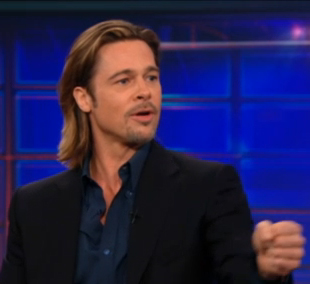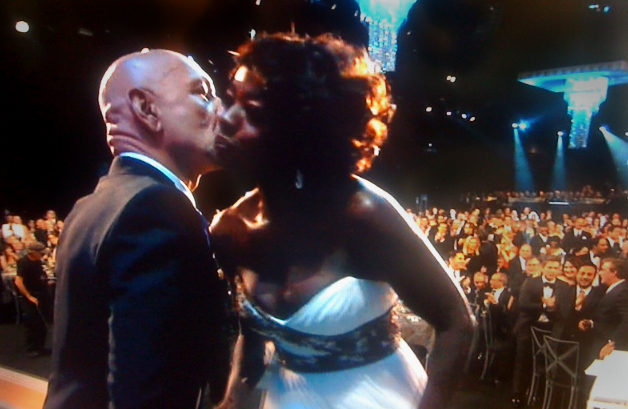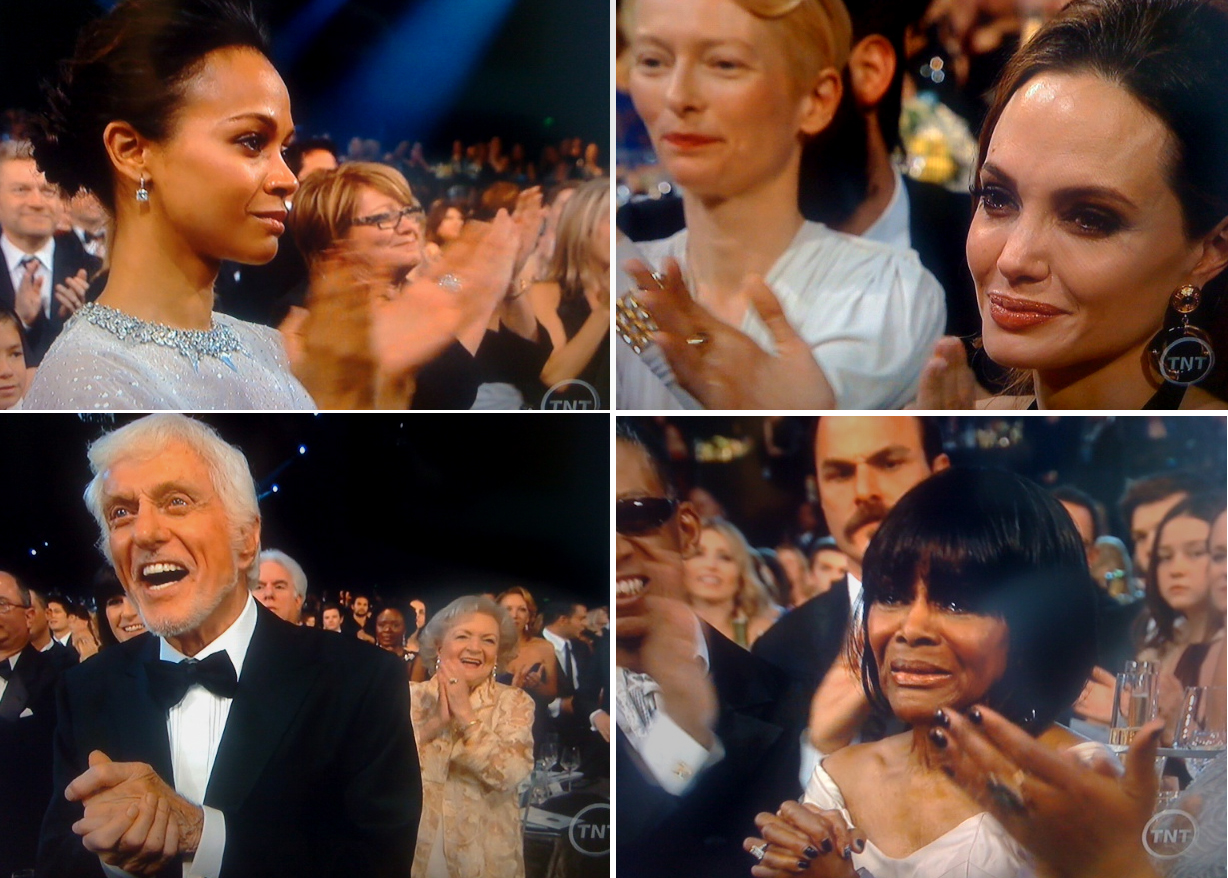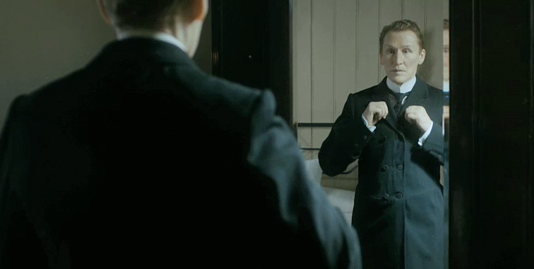Readers' Ranking: Streep's Oscar Noms, #16-11
 Friday, February 3, 2012 at 1:18PM
Friday, February 3, 2012 at 1:18PM Last month we asked readers to rank all of Meryl Streep's Oscar nominated performances...
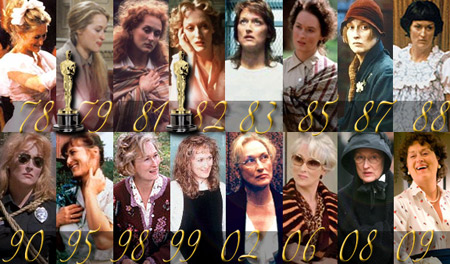
There were 16 of them when the polling began since The Iron Lady was still unseen by many and too fresh for retrospective rank as well. Here are the results in ascending order.
I've included comments on and from the ballots for extra flavor. You'll also find details and guesstimates about that year's Oscar voting though I'm sure you'll "correct" me if you have different ideas about how it all went down, won't you?
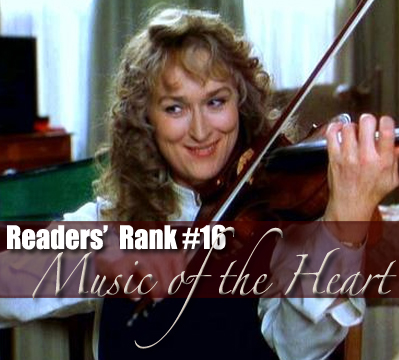 16. Music of the Heart (1999)
16. Music of the Heart (1999)
Role & Balloting: Streep's true story arts-friendly role about a violin teacher (yes, she learned the difficult instrument) is widely seen as her most obvious "default" nomination and though not everyone agrees with its low place in the Streep canon, it ended up in last place with Film Experience readers on 30% of the ballots. Quite a feat when you consider that it was also one of the least seen, absent from another 30% of the ballots. Yikes.
Who Won the Oscar: Hilary Swank, Boys Don't Cry
Other Nominees in Guesstimate Order of AMPAS Love: Annette Bening (American Beauty), Janet McTeer (Tumbleweeds) and Julianne Moore (The End of the Affair) and Meryl (Music of the Heart)
The Dread Sixth Place Finish?: T'was obviously Reese Witherspoon in Election, damnit. Oscar should've picked Flick!
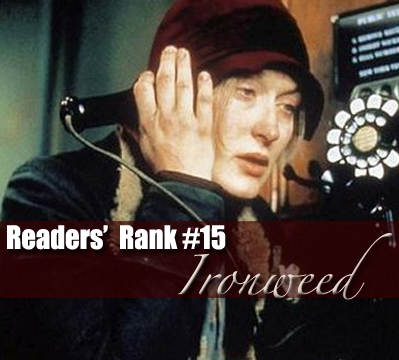 15. Ironweed (1987)
15. Ironweed (1987)
Role & Balloting: Her performance as a severe alcoholic former singer "Helen Archer" was greeted in the 80s as one of her strongest "technical" performances since she's virtually unrecognizable. Nowadways it's the least seen Streep nominated role and one of the most divisive considering where it ranked on ballots that had seen it (all over the place). Ironweed got some attention recently when Anne Hathaway resurrected Streep's "He's Me Pal" for the Kennedy Center Honors.
Who Won the Oscar: Cher, Moonstruck
Nominees in Guesstimate Order of AMPAS Love: Glenn Close (Fatal Attraction), Holly Hunter (Broadcast News), Sally Kirkland (Anna) and Meryl (Ironweed)
The Dread Sixth Place Finish?: I was personally nuts for Emily Lloyd's debut in Wish You Were Here but she wasn't Globe nominated so maybe she didn't have traction. Any 80s Oscar obsessives have an idea about who finished sixth that year? I don't have a strong sense of who.



